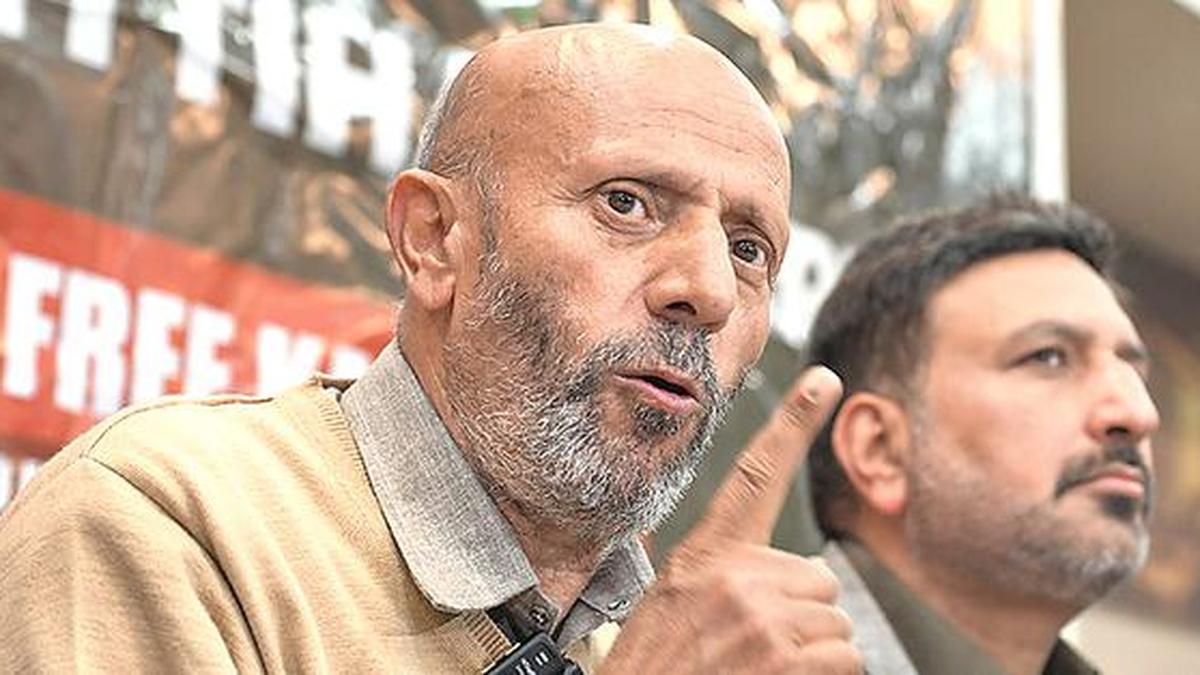Engineer Rashid's Bail Plea: A Fight for Justice in the Face of Adversity
The Indian political landscape is abuzz with anticipation as the fate of Sheikh Rashid, also known as Engineer Rashid, hangs in the balance. This prominent leader of the Awami Ittehad Party (AIP) and Member of Parliament, is currently incarcerated and fighting for bail in the Delhi High Court. His case has sparked national attention, igniting debates about justice, human rights, and the political climate in Jammu and Kashmir.
The Arrest and the Charges
Engineer Rashid's journey has taken him from electoral triumph to legal battles. After a stunning victory in the 2024 Lok Sabha elections—defeating heavyweights like Omar Abdullah and Sajad Lone—he was rearrested in 2019 on charges of 'terror funding' under the stringent Unlawful Activities (Prevention) Act (UAPA). This controversial law has drawn criticism for its potential to stifle dissent. His continued detention raises significant concerns among supporters and critics about the fair application of justice. His case highlights the contentious political situation in Kashmir and its impact on individuals, especially political leaders.
A Voice for the Marginalized?
The AIP vehemently defends Rashid, portraying him as a champion of the marginalized and a staunch advocate for the democratic aspirations of the people of Jammu and Kashmir. They claim his continued imprisonment represents a threat to democratic principles and the right to due process. The party's unwavering commitment to securing his release underscores the significant weight they attach to the case. His supporters believe his incarceration represents a targeted effort to silence a powerful political voice.
The Fight for Bail
The AIP's recent move to file a bail application in the Delhi High Court represents a crucial step in this ongoing legal battle. The high court's upcoming hearing will decide whether the ongoing legal arguments outweigh the severity of the charges. This judicial process is not simply a matter of legal technicalities, but a test of whether judicial procedure aligns with fundamental principles of justice and fair play.
High Stakes for Justice
The anticipation surrounding this hearing is palpable. This isn't just a court case; it's a showdown for democratic principles, fair process, and the very future of political activism in a sensitive geopolitical climate. The ruling on bail will have far-reaching implications, possibly serving as a case study in balancing national security concerns and individual rights.
The Public's Response and Political Implications
The case has galvanized both supporters and critics alike. Supporters claim the charges against Engineer Rashid are politically motivated; an attempt to silence opposition voices in Jammu and Kashmir. Critics highlight the seriousness of the charges. This debate transcends regional boundaries. The controversy surrounding the use of the UAPA continues to escalate the conflict. This incident underscores larger questions about political freedoms and judicial process in the region.
Navigating the Complexities
Understanding the complexities of this issue demands careful consideration. This includes analyzing the political climate of Jammu and Kashmir, examining the evidence presented, scrutinizing the UAPA itself, and engaging in responsible discourse. This necessitates avoiding biases in order to discern the merits of different perspectives fairly and objectively.
The Future of Engineer Rashid and the AIP
The AIP remains steadfast in their resolve to continue this fight. Their commitment to pursuing legal avenues and encouraging supporters to remain resilient reflects the deep emotional resonance of this case. Regardless of the outcome, the legal battle continues to illustrate the persistent tensions and political landscape surrounding political expression and representation in Jammu and Kashmir.
Ongoing Legal Efforts
The ongoing effort underlines the party's faith in the legal system, their support for Engineer Rashid, and their dedication to advocating for what they see as fair and just resolution of the charges against their leader. The continued legal challenge embodies perseverance, resilience and faith in the integrity of the judicial process. They see his release as pivotal in the maintenance of fair play in the region.
Take Away Points:
- Engineer Rashid's bail hearing is a critical moment, signifying the intersection of justice, politics, and human rights in Jammu and Kashmir.
- The charges under the UAPA raise questions about political repression, fairness, and due process.
- The AIP's staunch defense reveals deep commitment to their leader and unwavering advocacy for justice.
- The ongoing legal battle embodies the tensions surrounding free expression, representation, and justice in Jammu and Kashmir.
- This case serves as a prominent example to further analyze the application of the UAPA.




